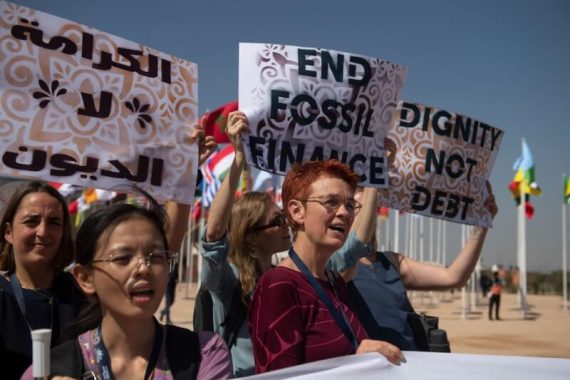T
he Institute for Economics & Peace (IEP) has recently unveiled its annual Ecological Threat Report (ETR), revealing a grim future where ecological degradation could become the catalyst for escalating conflicts and mass displacements globally.
According to the report, by 2050, an estimated 2.8 billion people will be living in countries facing severe ecological threats, a significant increase from the 1.8 billion noted in 2023.
The comprehensive report, which assesses 221 countries and territories, suggests that without urgent, concerted action, the world could witness a worsening of current levels of ecological degradation, leading to intensified conflicts and a spike in forced migration. This year’s findings underscore the pressing need for global strategies to build resilience and address the drivers of ecological decline.
Key findings and alarming trends
The 2023 ETR sheds light on the interconnected nature of ecological threats like rapid population growth, water scarcity, and food insecurity—all expected to be exacerbated by climate change. The research indicates that a 25% increase in food insecurity could heighten the risk of conflict by 36%, while a similar rise in populations lacking access to clean water could see an 18% surge in conflict likelihood.
The report pinpoints that currently, 1 billion people reside in 42 countries already facing severe food insecurity, with a quarter of the global population without regular access to safe drinking water. The situation is particularly dire in cities, with over 60% of the world’s rapidly growing megacities situated in countries with high levels of violence or conflict, lacking the financial resources to support their burgeoning populations.
Implications for peace and security
The IEP’s report emphasizes the cyclical relationship between ecological degradation and conflict, particularly in regions like the Sahel, which grapple with governance challenges, poverty, and climatic variations. The study also highlights how conflicts tend to spill over borders, affecting regional stability and beyond.
There is a distressing increase in the number of displaced individuals, with over 108 million people currently uprooted, marking a 24% rise since 2020. A notable portion of these migrations, including illegal entries into Europe, originates from countries stricken by ecological threats and conflict, with Syrian and Afghan nationals making up a significant percentage of such movements.
Urgent call for action
Steve Killelea, Founder & Executive Chairman of IEP, remarked on the importance of the upcoming COP 28 summit, calling for leaders to act decisively to counter the impending ecological crisis. “Countries with high levels of Positive Peace have the societal resilience to solve these challenges,” Killelea stated, emphasizing the need for programs that foster resilience and promote economic progress.
The report also stresses the challenges facing cities, which are expected to house 70% of the global population by 2050. The majority of these urban expansions will occur in countries with low incomes and high levels of violence, raising concerns over potential increases in crime, poverty, and pollution.
The path forward
The ETR serves as a stark warning to global leaders and policymakers about the impending ecological challenges and their potential to disrupt peace and security worldwide. It calls for a multi-faceted approach that includes investing in ecological conservation, building infrastructure resilient to climate change, and fostering international cooperation to manage the shared resources crucial for global stability.
As the world gears up for future climate summits and global policy discussions, the findings of the Ecological Threat Report will likely shape debates and inform the strategies deployed to navigate the complex landscape of ecological challenges and their implications for global peace.
Source: The Institute for Economics & Peace (IEP)
Recommended





